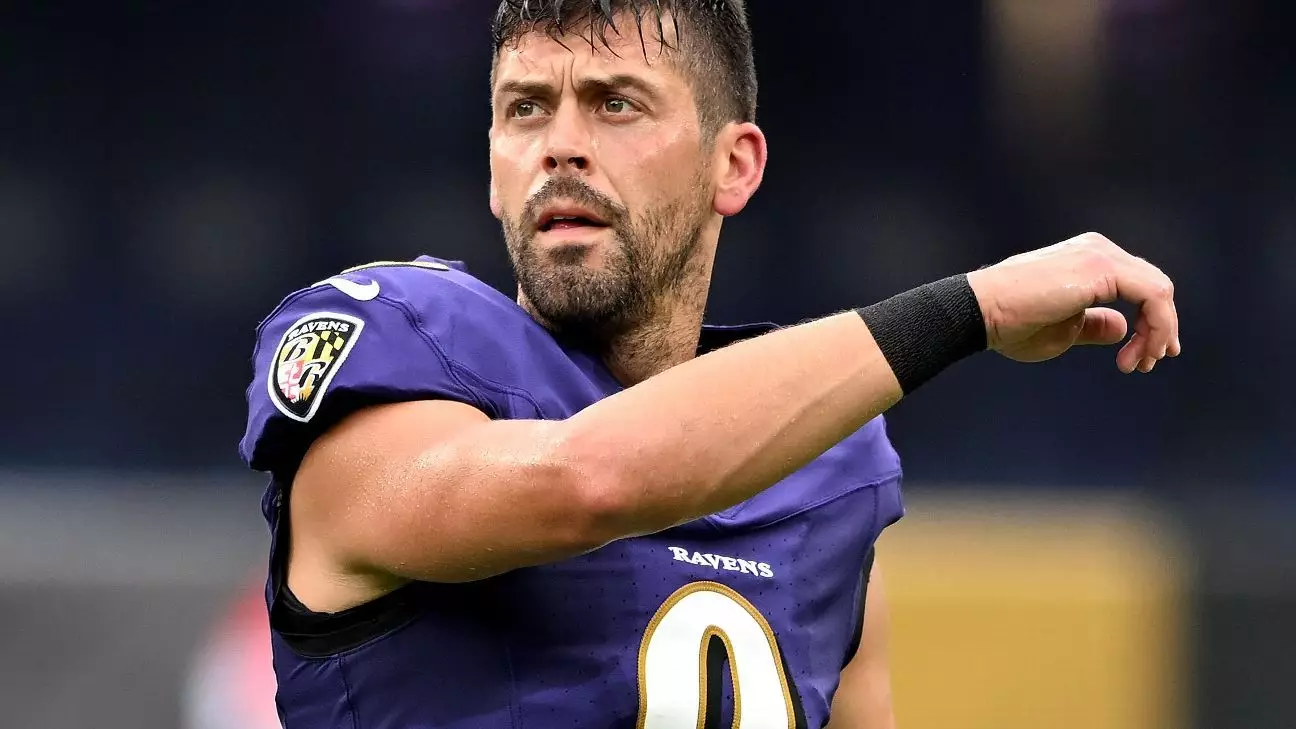The world of professional sports often presents its athletes as icons of excellence and integrity. However, allegations of misconduct can shatter that façade, leaving reputations hanging in the balance. Recently, Baltimore Ravens kicker Justin Tucker found himself engulfed in controversy as multiple massage therapists accused him of sexually inappropriate behavior. The emergence of these allegations not only threatens Tucker’s storied career but also raises broader questions about accountability within the NFL and the treatment of sexual misconduct claims in sports.
Reports indicate that a total of nine massage therapists have accused Tucker of inappropriate behavior, spanning incidents that allegedly occurred between 2012 and 2016, his initial five seasons in the league. The latest allegations detail a disturbing pattern of alleged misconduct. One therapist provided documentation from 2015 that claims Tucker engaged in unprofessional behavior during a massage session. Accusations include Tucker touching sensitive areas of her body, exposing himself, and even purportedly leaving bodily fluids on the massage table. Although she attempted to report these incidents back in 2015, fear of retaliation kept her from pursuing her claims further.
These allegations expose a troubling culture, where fear stifles the voices of those who could seek justice. In addition, this recent wave of claims has been bolstered by testimony from multiple therapists who reportedly worked at the same spa in downtown Baltimore, raising concerns about a systemic issue of misconduct within this specific setting. The spa’s owner, however, has claimed ignorance of any complaints against Tucker, further complicating the narrative.
The Response from Tucker and the Ravens
In the face of these allegations, Tucker and his legal team have categorically denied any wrongdoing. In a social media post, he described the allegations as “unequivocally false,” suggesting that the article from The Baltimore Banner twisted innocent interactions into scandalous accusations. This sentiment reflects a common tactic employed by those accused of misconduct—portraying the allegations as exaggerated or misconstrued. Tucker’s statement aims to discredit the voices of his accusers by framing the media attention as “desperate tabloid fodder,” suggesting a narrative driven more by sensationalism than by truth.
Similarly, the Ravens organization has made its position clear, stating that they take all allegations of misconduct seriously and that they are monitoring the situation closely. The Ravens had previously established a zero-tolerance policy regarding domestic violence, indicating a commitment to accountability within the organization, although this statement comes with its own complexities in light of the NFL’s history of handling misconduct allegations.
The seriousness of the allegations against Tucker raises critical questions about how the NFL addresses issues of personal conduct. According to NFL spokesman Brian McCarthy, the league was unaware of these allegations prior to the investigation by The Baltimore Banner. It is paramount that the NFL takes such claims seriously and undertakes thorough investigations as part of its personal conduct policy. However, the effectiveness and sincerity of these policies have often been questioned, especially given previous incidences where athletes faced minimal repercussions.
As the league navigates these allegations, the future of Justin Tucker in the NFL hangs in the balance. Tucker is not only a celebrated player but also a central figure on the Ravens, being the longest-tenured member of the team and their leading kicker. The repercussions of these allegations could mean more than just professional consequences; they could also affect his standing among fans and his financial future.
The Justin Tucker saga serves as a potent reminder of how fame does not immunize individuals from accountability. As more allegations surface, it compels the sports community to reflect on the ways in which it handles such serious accusations. The treatment of these allegations can either contribute to a culture of silence that allows misconduct to fester or pave the way for justice and transparency. The outcomes of such incidents will undoubtedly influence not only Tucker’s career but also the broader dynamics of accountability in professional sports, marking an essential turning point in the league’s stance on personal conduct.

